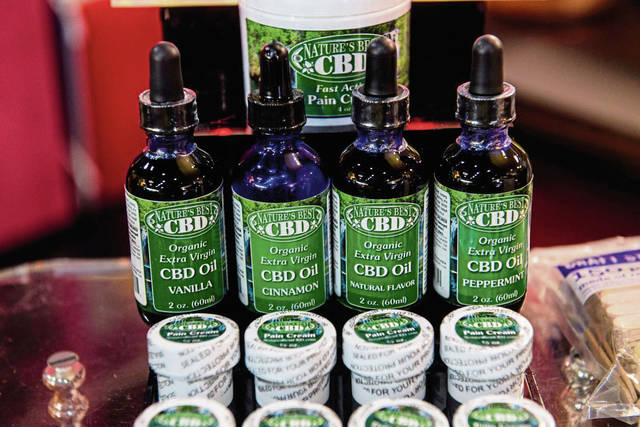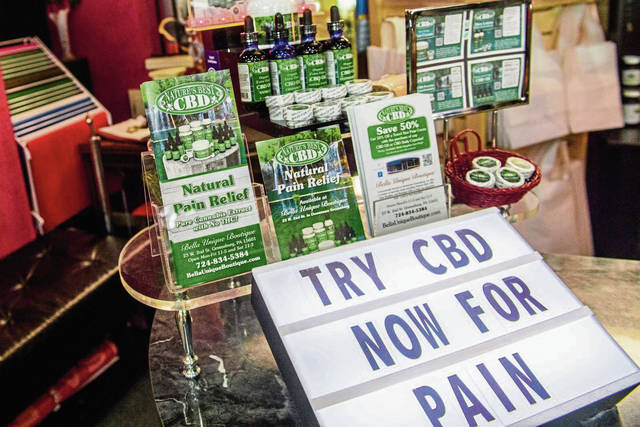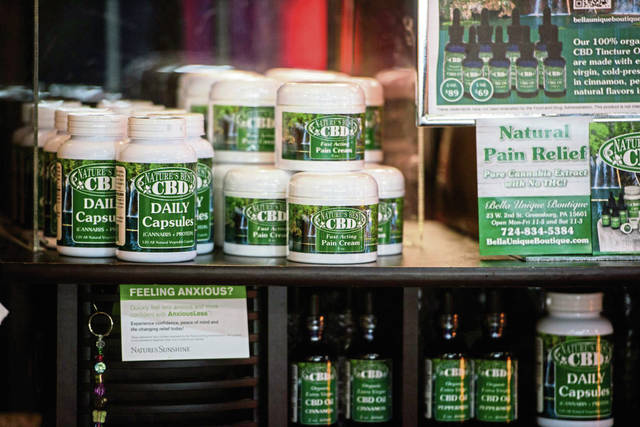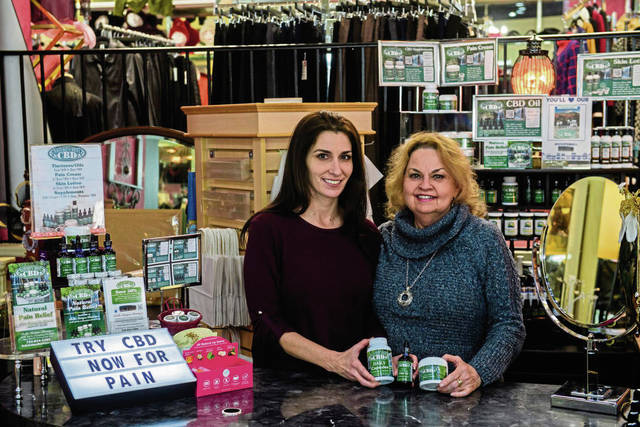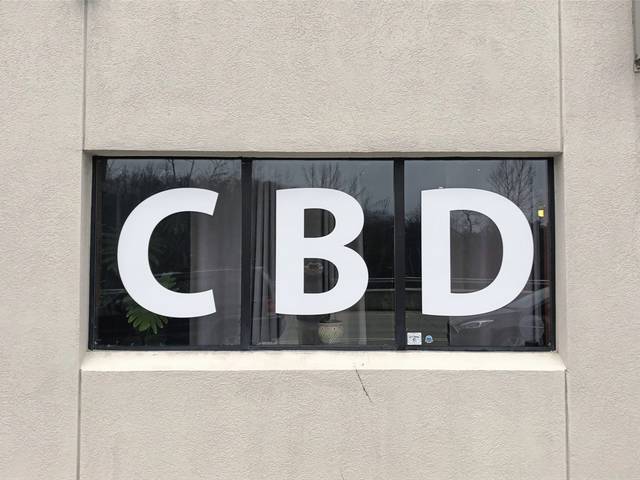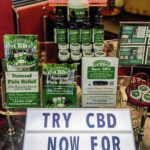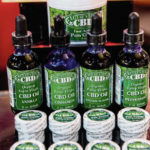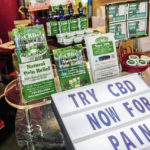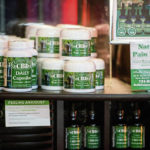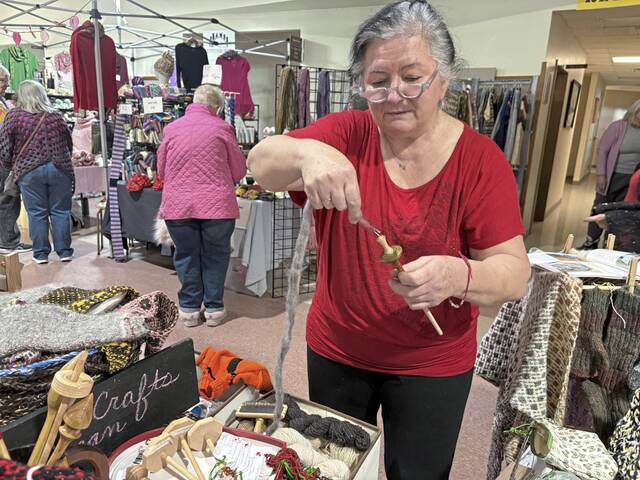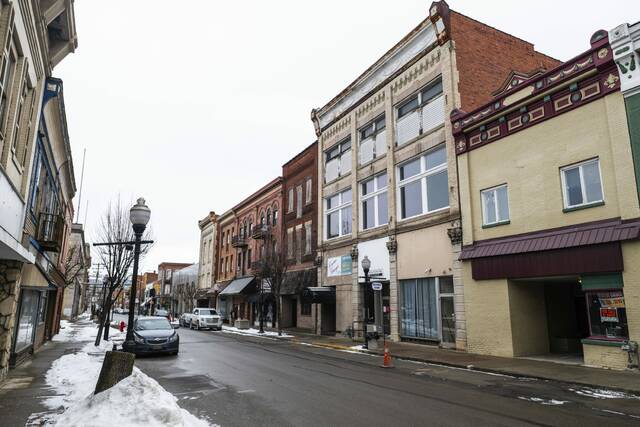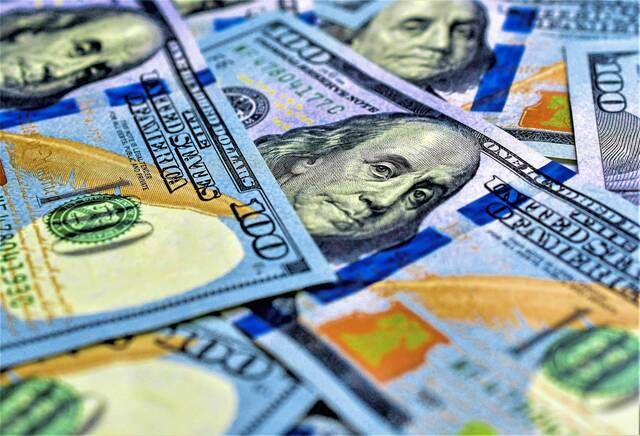Cannabidiol is everywhere — from chocolates to bath bombs and lotions to dog treats.
Purported benefits of the cannabis-derived products run the gamut. It’s been advertised as an anxiety reducer, pain reliever, sleep aid and cancer treatment.
More commonly known as CBD, the plant extract has become a popular form of alternative medicine. And unlike medical marijuana, which can only be purchased in strictly-regulated dispensaries by patients with a doctor’s recommendation, CBD can be found pretty much anywhere.
Bella Unique Boutique in Greensburg started selling CBD products in September 2017, amid the purses and clothing that are its usual stock and trade. CBD quickly became the store’s top seller, manager Beth DeNillo said.
“When you get sick, you look for healthy options when medicine doesn’t work,” she said.
PA Vapors in Murrysville started selling CBD products about four years ago to supplement its supply of vaping paraphernalia.
“We started way earlier than everyone else,” PA Vapor employee Jeff Higgins said. “Over the last two or three years, it’s really become more mainstream.”
However, customers should be cautious, said Sara Jane Ward, an assistant professor of Pharmacology at Temple University in Philadelphia who studies the medical benefits of cannabis. While she thinks CBD has potential benefits, she’s worried about the lack of research, regulation and education.
“I want those benefits to be properly nurtured in the right way, so that we can use those as a medication when it’s the right thing to do,” she said, “so I worry about the casual usage of it in ways that could be potentially harmful.”
Pennsylvania does not regulate CBD products. With no labeling requirements, it can be difficult for customers to know the origins of products, and there’s no shortage of companies willing to flaunt the law, Ward said.
“If it’s coming from (marijuana), it’s illegal,” she said.
She has seen companies boast that their CBD products are derived from the stalk or leaf of the marijuana plant, rather than the more potent bud. But this doesn’t make it legal — and, in fact, there is little CBD in the stalk or leaf, which means the product may not be what it claims to be.
“I don’t think it protects the company at all,” Ward said. “If anything, I think it advertises that they don’t know what they’re talking about, and they’re trying to be shady.”
Hemp-derived CBD existed in a legal gray area until Congress legalized it last year. Nevertheless, CBD products went unregulated and could be purchased from many retailers.
DeNillo said her customers were nervous when she first started selling hemp-derived CBD products. She had to assure them that what they were buying was not marijuana.
“We’re not here six days a week selling drugs,” she said. “We’re two blocks from the police station, and a block from the courthouse.”
More research needed
DeNillo has heard many stories about the benefits of CBD, and she has her own. She used to need a walker to get around due to severe pain caused by lupus. But since taking CBD, she’s been almost pain-free, she said.
Ward’s heard similar stories. So far, there’s little data to back them up, she said.
That doesn’t mean the anecdotes are wrong. Ward believes CBD does have medical benefits. She just wants to see more experiments to prove it.
“Almost everything we know about the benefits of CBD in humans is anecdotal, as well as any potential side effects.” she said.
One of the only large-scale human trials conducted to date found CBD effectively reduced the symptoms of children with epilepsy.
Last year, the seizure medication Epidiolex became the first — and so far only — cannabis-based drug to be approved by the U.S. Food and Drug Administration.
Another study found CBD was good at reducing the symptoms of schizophrenia. Other claims about CBD — that it’s a painkiller, brings a good night’s sleep, or eases cancer symptoms — have yet to be proven in a human trial, Ward said.
Some research has been done with animals. Other studies have been done with medical marijuana patients — but marijuana contains more than 100 compounds, combining and interacting in ways not fully understood, so these studies are unable to pinpoint the effects of CBD, Ward said.
So far, CBD does not appear to have many negative side effects, though some studies suggest it could cause liver damage in some cases, Ward said. This could be a result of it combining with other drugs, but there’s not enough research to know for sure.
DeNillo said she makes sure customers aren’t on blood thinners before she sells them CBD.
Customers sometimes ask if they should stop taking their doctor-prescribed medications when they start taking CBD. She warns them she’s not a doctor, and they shouldn’t treat CBD as a cure-all.
“We say it’s a supplement,” she said. “Add it to what you’re taking.”
Ward worries that customers are buying CBD products without consulting their doctors, or worse, buying products that claim to be CBD but aren’t.
Future of CBD
CBD is unlikely to go away anytime soon. Industry analyst Brightfield Group estimated the CBD industry was worth almost $600 million in 2018 and could be worth more than $2 billion by 2022.
Now that hemp is legal, there’s an opportunity for a domestic CBD market to grow. Pittsburgh-based Commonwealth Alternative Medical Solutions opened a CBD-processing facility in New Stanton last year.
Researchers are continuing to study the substance, Ward said.
Government agencies have made no effort to regulate CBD, but Higgins believes the days of buying it from any boutique, vape shop or corner store may be numbered.
“I think Big Pharma’s going to take it over at some point,” he said.
Jacob Tierney is a Tribune-Review staff writer. You can contact Jacob at 724-836-6646, jtierney@tribweb.com or via Twitter @Soolseem.



